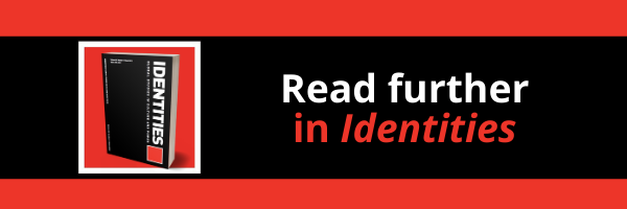|
|
|
Patriotism is having a moment. From French President Emmanuel Macron’s claim that patriotism is ‘the exact opposite of nationalism’ to UK Labour Party leader Keir Starmer’s call for party members to be ‘proud of being patriotic’, centrist and progressive politicians are appealing to patriotism as a bulwark against the rise of right-wing nationalism. In the US, a July 2021 YouGov poll found that sixty-nine percent of respondents believed that a person could be considered patriotic while participating in a protest for racial equality.
These examples stand in contrast to other recent appeals to patriotism: an ultranationalist French political party established in 2017 took the name ‘Les Patriotes’. The Tory government has spent £163,000 on Union flags in the past two years, and has lent its support to the ‘patriotic’ One Britain One Nation campaign. And the same July 2021 YouGov poll in the US found that sixty percent of Republicans considered themselves ‘very patriotic’ – compared to only twenty-four percent of Democrats. Why is patriotism so appealing across the political spectrum? And what does this mean for the prospects of ‘progressive’ patriotism? My Identities article, ‘‘The opposite of nationalism’?: rethinking patriotism in US political discourse’, considers the multiple and contradictory – but always exclusionary – ways that patriotism has been used by politicians across the US political spectrum. Politicians of all stripes, I find, describe themselves and their supporters as patriots. Although few define the term explicitly, all frame patriotism as an implicitly positive love for one’s country. I argue that this vagueness allows politicians to position their policy agendas, and their own character, as ‘authentically’ American. Crucially, it also permits them to position their opponents as unpatriotic and, by extension, un-American. This sharpens any attacks on a politician’s opponent; even more dangerously, it hardens the borders between those who belong to the nation and those who do not. For non-citizens, migrants and racially minoritised people, appeals to patriotism bring exclusion and violence.
The history of patriotism bears out these claims. The anti-racist movement, for example, has had a fraught relationship with patriotism since the Jim Crow era. Following the abolition of slavery, white supremacists invoked patriotism in their campaign of racial terror. For these groups (including elected officials, police, and participants in lynch mobs), patriotism was the celebration of a white racial state, and any blurring of its racial borders undermined the very idea of their country. Consequently, Black Americans who attempted to exercise their civil rights by voting were met with voter suppression, and those who laid claim to the nation by accessing public institutions were met with segregation and second-class citizenship. Both were imposed in the name of patriotism.
Later generations of anti-racist activists found that patriotism constrained them in other ways: when pan-Africanists appealed to global solidarity in the first decades of the twentieth century, they were deemed dangerous and un-American by the state. Paul Robeson and W.E.B. Du Bois, for example, lost their US passports because of their internationalist, anti-racist activism. In response, many anti-racist activists moderated their internationalism, presenting themselves first and foremost as Americans. Their patriotism, went the argument, entitled them to the full rights of US citizenship – foremost of which was the right to vote in US elections. In contrast, anti-racist and anti-colonial struggles outside the US were depicted as separate issues that did not concern Black Americans directly. Anti-racist activists who resisted the narrowing of their movement and continued to advocate an internationalist platform, such as the Council on African Affairs, found that their work was surveilled and suppressed by the state. The result was a ‘patriotic’ mainstream civil rights movement that won the appeal of a broader swath of citizens – and neatly excluded non-citizens. The history of the labour movement provides a similar lesson. In the early twentieth century, anti-union heads of industry launched a propaganda campaign against trade unions, claiming that they were aligned with international socialism rather than their co-citizens. In response, trade unionists loudly proclaimed their patriotism, flying US flags at their marches and voicing their support for US military interventions. By embracing patriotism, they aligned themselves with whiteness and masculinity, and disavowed global working-class solidarity. The tension between patriotism and international solidarity persisted throughout the twentieth century, culminating in the fall of the trade union movement and – following a protracted campaign to frame the GOP as the party of ordinary ‘working people’ – the defection of many white, working-class voters to the Republican Party in the 1970s. These two historical examples highlight both the allure and pitfalls of patriotism. Condemning social movements as unpatriotic is a powerful means of depicting them as a threat to the nation, its people and its values. The slipperiness of patriotism makes it a useful idea with positive associations that is difficult for a movement deemed ‘unpatriotic’ to rebuke. Instead, these movements respond by proclaiming their own patriotism. Yet doing so rejects transnational solidarities and creates space for hierarchies of race, class and gender. The exclusionary character of patriotism should give pause to those who endorse ‘progressive’ patriotism. ‘Love for country’ is not neutral; it has been weaponised against ‘unpatriotic’ people and ideologies. Patriotism, like nationalism, will always constrain and contradict appeals to empathy and solidarity.
Blog post by Meghan Tinsley, University of Manchester, UK
Read the Identities article: Tinsley, Meghan. ‘The opposite of nationalism’?: rethinking patriotism in US political discourse. Identities: Global Studies in Culture and Power. DOI: 10.1080/1070289X.2021.2004739
Explore other relevant Identities articles:
Denmark’s blond vision and the fractal logics of a nation in danger The chronopolitics of national populism [Open Access] 25 years after apartheid: are British-born South Africans signing up to the ‘rainbow nation’?
0 Comments
Your comment will be posted after it is approved.
Leave a Reply. |
|
Explore Identities at tandfonline.com/GIDE |
|
The views and opinions expressed on The Identities Blog are solely those of the original blog post authors, and not of the journal, Taylor & Francis Group or the University of Glasgow.


